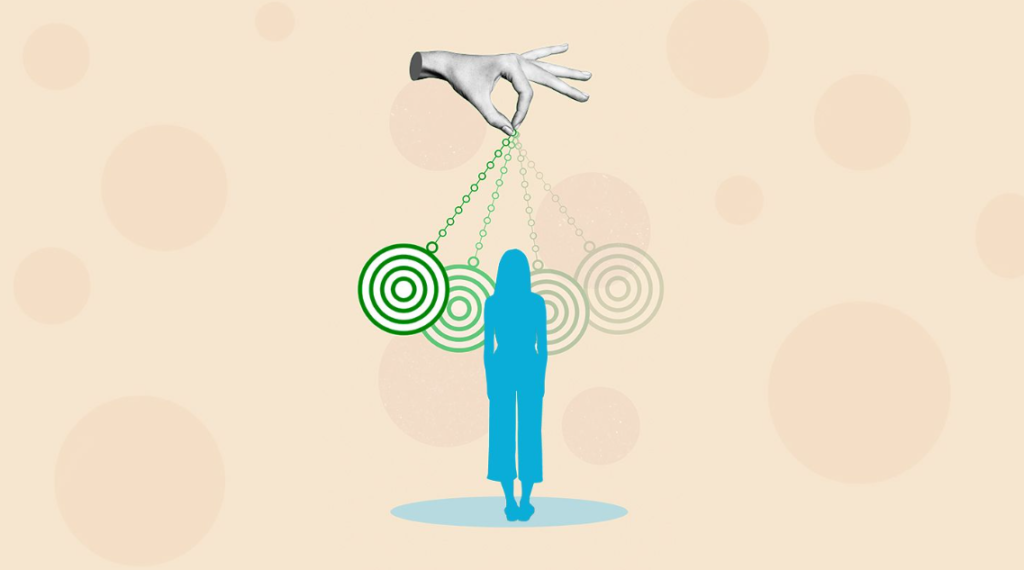Hypnosis has long been a subject of fascination and intrigue, often portrayed in movies and television shows as a mysterious and magical technique capable of controlling minds and uncovering hidden truths. However, the reality of hypnosis is far more nuanced and grounded in science. In this article, we will explore and debunk six popular myths about hypnosis, shedding light on what it truly is and what it isn’t.
Myth 1: Hypnosis Can Make You Do Anything Against Your Will
One of the most pervasive myths about hypnosis is that it can force individuals to act against their will. In truth, hypnosis cannot make someone do something they fundamentally oppose. Hypnosis is a cooperative process in which the individual is in control. A hypnotized person can choose to reject any suggestion that goes against their values or beliefs.

Myth 2: Hypnosis Is a Form of Mind Control
Contrary to the portrayal in movies, hypnosis is not mind control. It is a state of focused attention and heightened suggestibility. A hypnotist can offer suggestions, but the individual being hypnotized decides whether to accept or reject those suggestions. Hypnosis cannot override an individual’s moral compass or make them do something they find ethically objectionable.
Myth 3: Only Weak-Willed People Can Be Hypnotized
Hypnosis is not reserved for the weak-willed or gullible. In fact, research suggests that individuals with higher levels of intelligence and creativity may be more susceptible to hypnosis. The ability to be hypnotized depends on a person’s willingness, focus, and capacity to enter a trance-like state, which varies from individual to individual.

Myth 4: Hypnosis Can Retrieve Accurate Forgotten Memories
While hypnosis is sometimes used to help people recall forgotten memories, it is not a foolproof method for retrieving accurate information. Hypnosis can inadvertently create false memories or distort existing ones. The reliability of memories retrieved under hypnosis is a subject of debate among psychologists, and caution must be exercised when using hypnosis for memory recall.
Myth 5: Hypnosis Is a State of Deep Sleep or Unconsciousness

Hypnosis is often associated with sleep, but it is not a state of unconsciousness. It is a heightened state of focused attention and relaxation. People in a hypnotic trance are aware of their surroundings and can respond to suggestions given by the hypnotist. It is more akin to daydreaming than being asleep.
Myth 6: Hypnosis Can Cure All Ailments
Hypnosis has shown promise in various therapeutic applications, such as managing pain, reducing stress, and treating certain psychological conditions. However, it is not a panacea that can cure all ailments. Its effectiveness varies from person to person and depends on the specific issue being addressed. It should always be used in conjunction with other evidence-based treatments when necessary.
The Science Behind Hypnosis
Hypnosis is a legitimate psychological phenomenon with a growing body of scientific research supporting its use in certain therapeutic contexts. It is often employed by trained professionals to help individuals overcome challenges, manage pain, and improve their overall well-being. While it may not possess the mystical qualities often depicted in popular culture, hypnosis remains a valuable tool in the field of psychology.

The Ethical Use of Hypnosis
To harness the potential benefits of hypnosis, it is essential to emphasize the ethical use of this technique. Hypnotists and therapists should adhere to strict guidelines and ethical principles to ensure the well-being and autonomy of the individuals undergoing hypnosis. Here are some key ethical considerations:
- Informed Consent: Individuals should provide informed consent before undergoing hypnosis. They should be fully aware of the process, potential outcomes, and any potential risks involved.
- Respect for Autonomy: Hypnotists must respect the autonomy of their clients. Suggestions made during hypnosis should align with the client’s values and goals, and clients should always have the option to reject suggestions.
- Confidentiality: Hypnotists and therapists should maintain strict confidentiality regarding the information shared during hypnosis sessions. Trust and privacy are paramount.
- Beneficence and Non-Maleficence: The well-being of the client should be the primary concern. Suggestions made during hypnosis should aim to benefit the individual and not cause harm.
- Professional Training: Hypnotists and therapists should have proper training and certification in hypnotherapy. This ensures that they have the necessary skills and knowledge to conduct hypnosis sessions safely and effectively.
- Monitoring for False Memories: In cases where hypnosis is used for memory recall, professionals should be vigilant about the potential creation of false memories. These can have serious consequences, and steps should be taken to prevent or address them.
The Evolving Understanding of Hypnosis

As our understanding of the human mind and consciousness continues to evolve, so does our comprehension of hypnosis. Modern neuroscience has shed light on the neural mechanisms underlying hypnotic states, revealing that hypnosis involves changes in brain activity and connectivity.
Studies using functional magnetic resonance imaging (fMRI) and electroencephalography (EEG) have shown that during hypnosis, there are alterations in the brain’s default mode network, attentional processes, and sensory perception. These findings deepen our understanding of how hypnosis works on a neural level.
Moreover, research into the clinical applications of hypnosis continues to expand. It has been used successfully to complement traditional treatments for conditions such as chronic pain, anxiety disorders, and post-traumatic stress disorder (PTSD). As science delves further into the therapeutic potential of hypnosis, it may unlock new avenues for mental health and well-being.
Conclusion
Hypnosis, once shrouded in mystery and misconceptions, now stands as a legitimate and valuable tool in the realm of psychology and therapy. It is a testament to the capacity of the human mind to enter altered states of consciousness and to harness these states for therapeutic purposes. By debunking the popular myths surrounding hypnosis and emphasizing its ethical use, we can appreciate its potential to help individuals overcome challenges and enhance their quality of life. As science and research continue to unravel the mysteries of the mind, hypnosis remains a fascinating and promising avenue for exploration and healing.
ALSO READ: Generating Oxygen On Mars: The Triumph of NASA’s MOXIE OF 2023




































